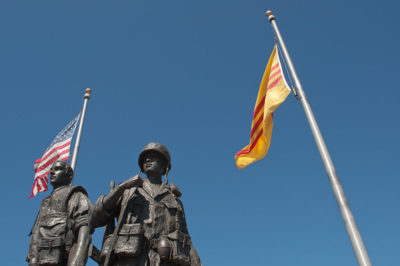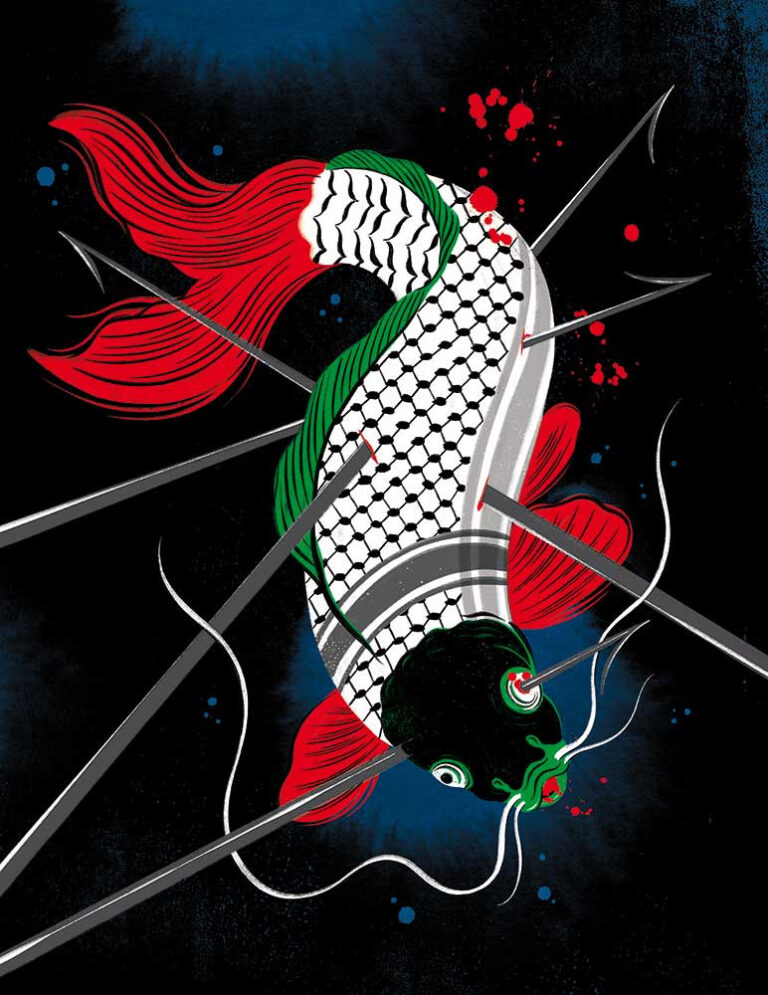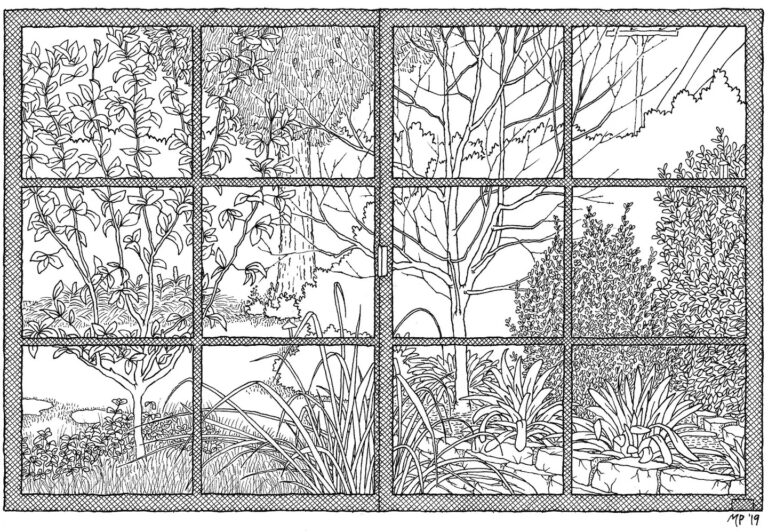
Today is what many Vietnamese in the diaspora call “Black April.” For them it is the anniversary of the Fall of Saigon. I understand their feelings. I grew up in a Vietnamese community in San Jose, and I absorbed their memories and their unspoken trauma. My own family was marked by separation and division, by people and property left behind. And yet, I could never wholeheartedly endorse this sense of loss and grievance, could never bring myself to say “Black April” (not least of all because if we were to to speak of mourning, we should say “White April,” but that would not go over so well in a white America). Like my narrator in The Sympathizer, I see every issue from both sides, and so I see that for some Vietnamese people this is not a day of mourning but one of celebration. The Fall is for some the Liberation.
And yet, it is important to mark this day because it is the symbolic moment when so many Vietnamese people became refugees. Many people have described me as an immigrant, and my novel as an immigrant story. No. I am a refugee, and my novel is a war story. I came to the United States because of a war that the United States fought in Vietnam, a war that the Vietnamese fought with each other, a war that China and the Soviet Union were involved in, a war that the Vietnamese brought to Laos and Cambodia, a war that did not end in 1975, a war that is not over for so many people of so many nationalities and cultures. For Americans to call me an immigrant and my novel an immigrant novel is to deny a basic fact of American history: that many immigrants to this country came because of American wars fought in the Philippines, Korea, Laos, Cambodia, Vietnam. Immigrants are the story of the American Dream, of American exceptionalism. Refugees are the reminder of the American nightmare, which is how so many who are caught under American bombardment experience the United States.
As much as Americans fear refugees and seek to transform refugees into immigrants who fulfill the American Dream, the Vietnamese who stayed in Vietnam have a hard time understanding their refugee brethren. I had breakfast with a former Vietnamese ambassador in Hanoi and she said that the “boat people” were economic refugees, not political refugees. Probably every single Vietnamese refugee would disagree with her, and the ethnic Chinese who were persecuted, robbed, and blackmailed would say that the line between being an economic refugee and a political refugee is a very thin one.
One of my Vietnamese language teachers said that the re-education camps were necessary to prevent postwar rebellion. Perhaps rebellion was in the making, but reaching out a hand in peace and reconciliation would have done so much more to heal the country. The Vietnamese people overseas remember the re-education camps as the ultimate hypocrisy of the Vietnamese revolution, the failure of Vietnamese brotherhood and sisterhood. This, too, is one reason why so many Vietnamese people became refugees and why so many find it hard to reconcile with a Vietnam that will not acknowledge its crimes against its own people, even as it is so ready to talk about the crimes of the South Vietnamese, the Americans, the French, and the Chinese. Nothing is more difficult than to look in the mirror and hold oneself to account. The victorious Vietnamese are guilty of that. So are the defeated Vietnamese.
I’ve heard more than once from Vietnamese foreign students in the United States that the past is over, that the Vietnamese at home understand the pain of the Vietnamese overseas, and that we should reconcile and move on. These students do not understand what the overseas Vietnamese feel–that they lost a country. It is easier to be magnanimous when one has won. But at least these Vietnamese students want to be magnanimous. At least they reach out a hand in friendship, unlike many of an older generation.
The younger Vietnamese Americans need to reach out that hand, too, even as they feel the deep need of filial piety. They wish to acknowledge the suffering and the pain of their parents and grandparents. If they do not, who will? They live in a country where most Americans know nothing about the Vietnamese people, or about Vietnamese Americans, where Americans care little to remember the Southern Vietnamese who they supposedly fought the war for. So the younger Vietnamese Americans feel that burden to carry on their parents’ memories. One day, perhaps, they can let that burden go, but it will be much easier to do so when Vietnam helps to carry that burden by officially acknowledging that every side in that war had its reasons, that every side had its patriots, that we cannot divide the past into heroes and traitors.
As for me, I remain a refugee. My memory begins when I arrived in the United States at age four and was taken away from my parents to live with a white family. That was the condition for being able to leave the refugee camp in Fort Indiantown Gap, Pennsylvania. That experience remains an invisible brand stamped between my shoulder blades. I have spent my life trying to see that brand, to make sense of it, to rework it into words that I can speak to myself, that I can share with others. As painful as that experience was, what I learned from it was not to dwell only on my own pain. I needed to acknowledge that pain, to understand it, but in order to live beyond it, I also needed to acknowledge the pain of others, the worldview of others. This is why I cannot say “Black April,” because it is one story of one side, and I am interested in all stories of all sides.


